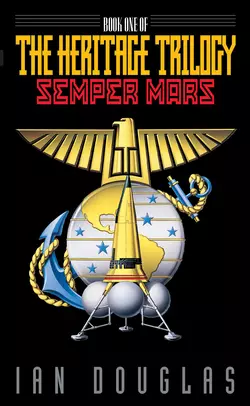Semper Mars

Ian Douglas
Тип: электронная книга
Жанр: Современная зарубежная литература
Язык: на английском языке
Стоимость: 458.46 ₽
Статус: В продаже
Издательство: HarperCollins
Дата публикации: 16.04.2024
Отзывы: Пока нет Добавить отзыв
О книге: The Marines have landed on Mars to guard the unearthed secrets of an ancient and dangerous alien race: Ourselves.The Year is 2040.Scientists have discovered something astonishing in the subterranean ruins of a sprawling Martian city: startling evidence of an alternative history that threatens to split humanity into opposing factions and plunge the Earth into chaos and war. The USMC – a branch of a military considered, until just recently, to be obsolete – has dispatched the Marine Mars Expeditionary Force, a thirty-man weapons platoon, to the Red Planet to protect American civilians and interest with lethal force if necessary.Because great powers are willing to devastate a world in order to keep an ancient secret buried. Because something that was hidden in the Martian dust for half a million years has just been unearthed . . . something that calls into question every belief that forms the delicate foundation of civilization . . .Something inexplicably human.